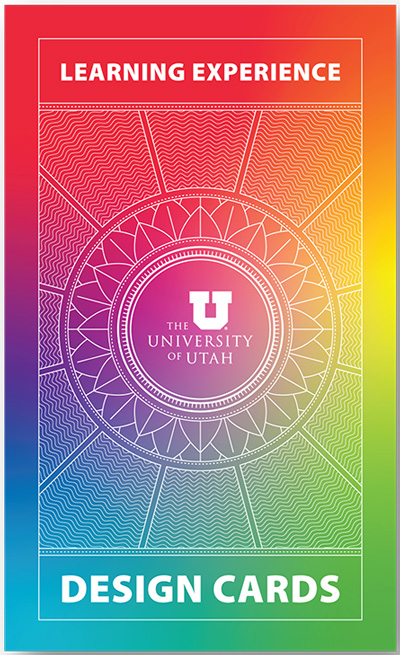UIT Leadership Spotlight: Jon Thomas, director, Digital Learning Technologies

Where are you from originally?
I am originally from Utah. Growing up, I had the opportunity to live in various cities within the state, including Orem, West Jordan, Centerville, Provo, Holladay, and more recently, Logan and now Riverton. Utah holds a special place in my heart. It’s a state of incredible natural beauty, and I have fond memories of childhood camping trips that included hiking in the high Uinta Mountains and rappelling through slot canyons in southern Utah’s redrock country.
What post-secondary degree(s) do you have, in what subjects, and from which school(s)?
I hold a bachelor's degree in management information systems from Brigham Young University (BYU). It was a rewarding program that provided me with a strong foundation in management principles and information systems technology.
I also have a master's and Ph.D. in Instructional Technology and Learning Sciences from Utah State University (USU). I have a passion for education and currently teach an introductory Python course in the David Eccles School of Business, which I thoroughly enjoy. (I hope my students feel the same way.)
What led you to the University of Utah?
I was pursuing my Ph.D. when I met my future boss, Cory Stokes, as he participated in a weekly lunchbox lecture series sponsored by USU. At the time, Cory was the director for Teaching & Learning Technologies at the U. After a brief discussion about his presentation, he told me that he was hiring for a management position and invited me to apply. I politely declined but ended up reconsidering later that evening after working on my student-salary budget.

DLT's Learning Experience Design Cards
Can you describe the path you took
to IT leadership?
Before arriving at the U, I had worked as a software developer for several years. This skill set was essential in one of my first roles at the university as the supervisor for a small team of developers. Since then, I have always been on the lookout for new opportunities and try to learn from the experiences afforded me. One such opportunity has been the development and design of Digital Learning Technologies’Learning Experience Design Cards. We’ve presented our LXD Cards at conferences including the Online Learning Consortium (OLC) and University Professional and Continuing Education Association (UPCEA), and we’ve been published in The Teaching Professor newsletter. While this isn’t the traditional highlight for “IT leadership,” I do think that discovering innovative approaches is essential to becoming a leader in any field.
How would you describe your leadership style and/or philosophy?
One of my favorite books on leadership is “Leadership and Self-Deception” by the Arbinger Institute. In a nutshell, the authors describe the damaging effects of ego and how we must consistently seek to open ourselves to others’ ideas and solutions. Keeping our minds open also allows us to see our colleagues as real people rather than obstacles or “resources.”
While at the U, I’ve been mentored by leaders who embody this ethic, including Cory Stokes, Marti Bradley, Steve Hess, and most recently, Deb Keyek-Franssen. Each of these individuals has had a profound impact on my life and provided insight into what true leadership looks like.
What do you enjoy most about your role at the U?
After starting at the U, I frequently described my work as my “dream job.” I still feel that way. It’s a joy to work for the university and be able to apply my passion for education in my day-to-day work with learning technologies.
What do you find most challenging about your job?
The university is big, comparable in population to a medium-sized city. Because of its size, and the number of moving parts, it is sometimes difficult to make needed changes. That being said, we have and will continue to make headway. Past efforts to coordinate our technology adoption work have proven effective. And a recent effort to document the student journey is leading to new insights. I look forward to seeing these discussions progress.
What are some of your hobbies?
I spend a lot of time helping in the youth organization at my church. I also love to hike (when I can get a chance). I’m an avid reader and love to explore new ideas. Currently, I am reading “Positive Intelligence” by Shirzad Chamine, and it’s fantastic.
Is there a fun fact about yourself that you’d like to share?
This year, our family became first-time dog owners of a mini Goldendoodle, and we absolutely love him! I’ve suddenly turned into a “dog guy.” And what’s weird is that I now see all dogs a little differently; it’s a strange perspective shift from “meh” to “aww.”
Node 4
Our monthly newsletter includes news from UIT and other campus/ University of Utah Health IT organizations, features about UIT employees, IT governance news, and various announcements and updates.
